crir/news |
|||||
news | previous | motivation | about | new.house_&_links | how to apply | contact  |
|||||
July 8th to July 24th, 2025Adam Flint
|
French Book
|
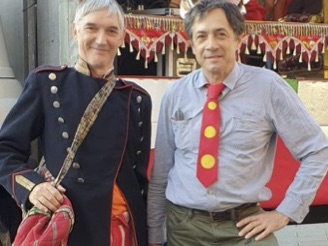 CRIRs representant Emmerik Warburg (left) with author François Bellemare (right) . |
This stay represents for me the opportunity to participate in the golden wedding celebrations between the Freetown and the Kingdom of Denmark; but also to present my book, recently published in Quebec about the History of Christiania and the surrounding district of Christianshavn.
This publication – only the 3rd or 4th in French on the subject -- is linked to a larger project planned for next year at the Centre de Design of the Université du Québec à Montréal and stems from the documentary research made during my previous stay at CRIR. Combining chronological narration and thematic boxes with more than 250 illustrations, the book wants above all to present, beyond a rational political project, the loving relationship between a place and its people.
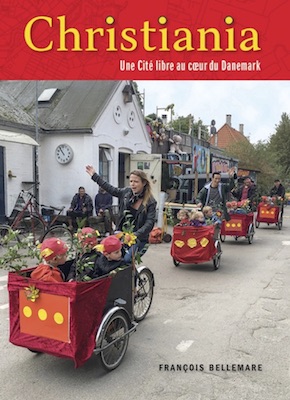 |
French: Ce séjour-ci est l’occasion de participer aux célébrations des noces d’or entre la Cité libre et le royaume du Danemark; mais aussi de présenter mon livre, récemment publié au Québec, racontant l’Histoire de Christiania et du quartier qui l’entoure, Christianshavn. Cette publication -- seulement la 3e ou 4e en français sur le sujet -- est liée à un projet plus large prévu pour l’an prochain au Centre de design de l’Université du Québec à Montréal, et découle de la recherche documentaire réalisée lors de mon précédent séjour à CRIR. Combinant narration chronologique et encadrés thématiques avec plus de 250 illustrations, le livre veut surtout présenter, au-delà d’un rationnel projet politique, la relation amoureuse entre un lieu et ses gens. |
Danish:
Dette ophold er lejliheden for at deltage i festlighederne for Guldbryllupet mellem Fristaden og kongeriet Danmark; men også for at præsentere min bog, udgivet for nylig i Quebec, der fortæller historien om Christiania og bydelen Christianshavn, som omgiver den.
Denne udgivelse – kun den tredje eller fjerde på fransk om emnet – er knyttet til et større projekt til næste år i Université du Québec à Montréals Design Centre og følger den dokumentariske forskning fra mit sidste opholds på CRIR. Bogen kombinerer historisk fortælling og faktabokse med over 250 illustrationer; og bogen ønsker især at vise, ud over at være et politisk projekt, et kærlighedsforhold mellem et sted og dets mennesker.
- - - - - - - - - - - - - - - - - - - - - - - - - - - - - - - - - - - - - - - - - - - - - - - - - - - -
August 2021
Mark Edwards
Photographer
book release:
"christiania
50th anniversary edition"
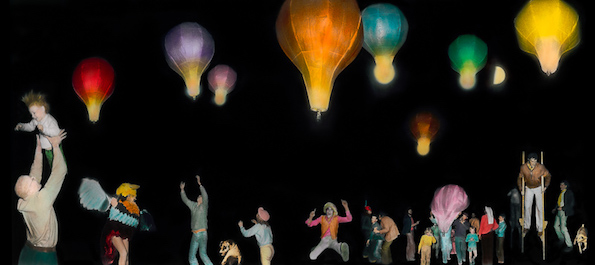
London based english photographer Mark Edwards has re-issued his iconic Christiania tales and photos
-216 pages, in english.
See and buy the book here
Watch a BBC programme about Christiania and the book here
- - - - - - - - - - - - - - - - - - - - - - - - - - - - - - - - - - - - - - - - - - - - - - - - - - - -
August 2021
Lucas Duval
Master thesis
Le territoire de Christiania : entre normalisation et
gentrification
Abstracts:The legalization of a former squat, located in the center of Copenhagen, happened nine years ago by the partial buyback through the formation, by the population, of a private foundation.
The territory is used in attractiveness and touristic purposes by the Municipality of Copenhagen, but it is still a problematic space because there is organized drug selling and the territory planning is challenged.
This master’s thesis questions the effects of the legalization and the process of normalization, wanted by the government, on the way of life of the inhabitants and on the social structure of the population.
Download thesis (in french)
- - - - - - - - - - - - - - - - - - - - - - - - - - - - - - - - - - - - - - - - - - - - - - - - - - - -
8th of August 2021 to 31st of August 2021
Shazia Khan
Photographer
I am here to portray people living in Christiania. “What are your dreams for the future both for yourself and Christiania?” Some of the photos will be shown as an outdoor exhibition for Christianias birthday and some photos along with the soundclips will be online.When I was 15 years old, I lived in Christiania for one year. It feels good to be back – even for at short while. Please contact me if you interested or just say want to hello!
Tel. +45 50452801
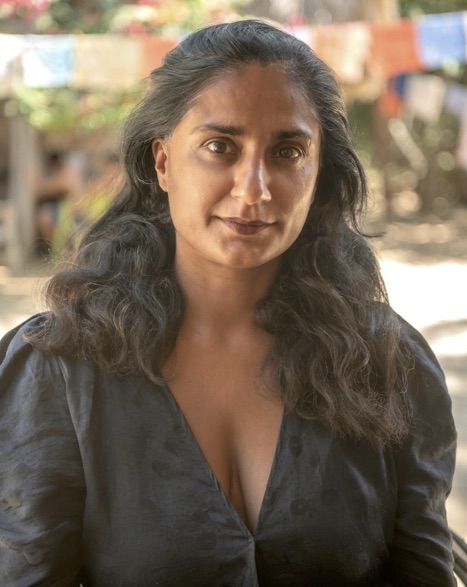
Shazia Khan was born 1976 in Odense, Denmark. She´s a trained commercial photographer. She has lived and travelled extensively for 8 years in South America and Nepal, Iran, Pakistan, Kashmir. Her work ranges from feature portrait stories to more abstract photo series. Her work has been shown at numerous exhibitions and been published by the largest Danish newspaper, Jyllandsposten, and in books and magazines. In 2020 she was awarded Honorable Mentions in the International Photo Competition PX3 in Paris, and in Tokyo Photo Awards.
www.shaz.dk
- - - - - - - - - - - - - - - - - - - - - - - - - - - - - - - - - - - - - - - - - - - - - - - - - - - -
28th of July 2021 to 4th of August 2021
Andreas Kupsch
our gardener
Andreas is helping out with the garden and the house- - - - - - - - - - - - - - - - - - - - - - - - - - - - - - - - - - - - - - - - - - - - - - - - - - - -
1st of July to 8th of July 2021
Cristina Gallizioli
Artist
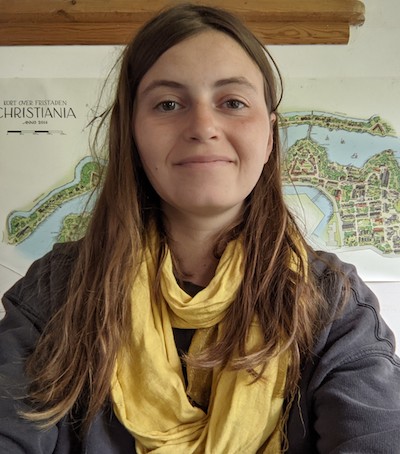
I am an artist trained in the architecture field with a focus on landscape and performing arts. I would like to research Christiania landscape, and the compresence of an intimate and domestic dimension with an open and collective idea of space. I am interested in how such landscape accommodates both ideas of shared space and intimacy, the type of actions that happen in Christiania landscape and how these actions reveal the compresence of these two features.
I will spend time outdoors in Christiania organizing a series of study picnics. By choosing the areas and setting a temporary picnic into the landscape, I start to create a relationship with it. This relationship is already shared, with entities such as plants, animals and minerals nearby, and people who pass by. To make this intimate experience even more shared, I’d like to invite one Christiania inhabitant for each picnic. Sharing a convivial moment will be part of the research, the action we’ll do together will be part of the domestic and shared dimensions of the landscape.
During each study picnic I will draw the situation, using drawing as a performance space: it will include relations in the landscape that were already present, how they changed with the arrival of the picnic area, and the arrival of the guest. Drawings will register the layered experience of shared intimacy and relations in/of Christiania landscape. At the end I’ll share thoughts on the research through an outdoor open studio.
- - - - - - - - - - - - - - - - - - - - - - - - - - - - - - - - - - - - - - - - - - - - - - - - - - - -
June 2021
Rasmus Blædel Larsen
Researcher
Podcast
Voices of early Christiania. CRIR-researcher ethnologist Rasmus Blædel Larsen has made a podcast-series in four parts called: Christianiastemmer. 12 Christianites who arrived in the timespan 1971-1985 tell their arrival-stories and muse on personal trajectories as well as the Free State they encountered. Each interview ends with the question: If you could have one birthday-wish granted, now that Christiania turns 50, what would it be? The podcasts are in Danish and can be found here:http://den2radio.dk/programserier/christianiastemmer/
- - - - - - - - - - - - - - - - - - - - - - - - - - - - - - - - - - - - - - - - - - - - - - - - - - - -
6th of June 2021 to 21st of June 2021
Aja Waalwijk and Valal
Guests from the free city Ruigoord in Holland
Link to Ruigoord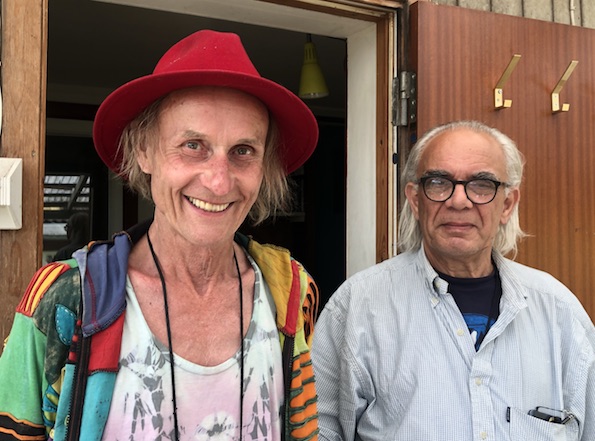
In the celebration of Christiania´s 50 years birthday, Aja and friends are helping the Free town Festival September 2021 and Christiania with road signs to other free citys around the world.
Link to Free town festival
- - - - - - - - - - - - - - - - - - - - - - - - - - - - - - - - - - - - - - - - - - - - - - - - - - - -
8th of May to 6th of June 2021
Samuel Lancaster
Christiania Culture Club (CAKF)
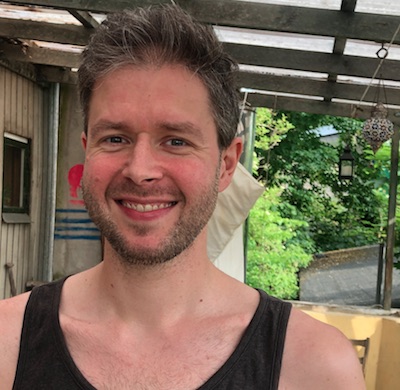
Samuel is back in the house again. He was here in February 2021 helping CAKF with accounting issues.
- - - - - - - - - - - - - - - - - - - - - - - - - - - - - - - - - - - - - - - - - - - - - - - - - - - -
May 2021
José Barbosa
We welcome a New Book from our June 2020-guest:
"Space Wars. TRANSGRESSIVE ARCHITECTURE"
Published on Apr 26, 2021. 190 pagesTake a look:
https://issuu.com/josecnabarbosa/docs/space_wars

The term Space Wars was coined by sociologist and philosopher Zygmunt Bauman to describe the way in which space is fabricated has turned into a power play. The fabricators are those who are in positions of power and wishing to homogenise cities to fit a specific narrative. This does not offer much room for space to be interpreted, used, and developed in any different way. However, this war has a resistance army: transgressors.
Transgression has as its core the exceeding of due bounds or limits. There are people who, sometimes without even knowing it, push the boundaries of space. It should be noted that transgression is an act of disobedience; therefore, the purpose of my thesis was not to glorify any sort of transgression. However, the term can provide us with a valuable source in which to investigate architecture and challenge its accepted norms and practices.
For my case study I chose to select a site which has been using architectural and spatial transgression in their own Space War. What we see in Freetown Christiania, is how space has been used and most importantly, misused to construct their own narrative. Throughout its history, Christiania has been “fighting against normalisation and for their version of the right to the city”.
https://issuu.com/josecnabarbosa/docs/space_wars
- - - - - - - - - - - - - - - - - - - - - - - - - - - - - - - - - - - - - - - - - - - - - - - - - - - -
Louise Fabian and Anders Lund Hansen
2nd of May to 6th of May 2021
Our two steering group members from The Universities of Lund and Aarhus are here to resarch the Christiania Archives for the "HERA" Project.- - - - - - - - - - - - - - - - - - - - - - - - - - - - - - - - - - - - - - - - - - - - - - - - - - - -
1st of April 2021 - 2nd of May 2021
Lucas Deval
student from the French Institute of Geopolitics in Saint-Denis (France)
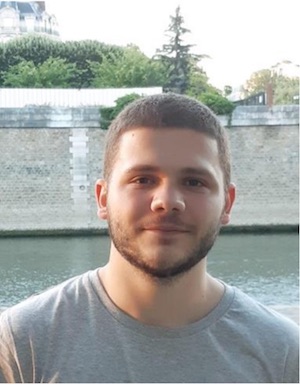
My thesis is about the geopolitics of Christiania.
I am trying to figure out the different representations the actors have of their territory, the conflicts that exists between them, and what are their strategies. The main question is to understand how these adapt their strategies and finally, what is the impact on the spatial’s organisation of Christiania.
Since it is a geographical study of the territory, I would communicate it to the inhabitants of Christiania as it. I would explain them how their representations are crucial in the way they practice the space and the impacts on its development.
I am interested about their experience of living in Christiania, about their dailyroutine. To comprehend their perceptions of their environment, I will ask the Christianites to draw their town. I will also contact the political organisations and the local press of Christiania because I am interested in the way they defend the idea of the Freetown.
All testimonies will be transcripted anonymously if required by the persons or organisations.
- - - - - - - - - - - - - - - - - - - - - - - - - - - - - - - - - - - - - - - - - - - - - - - - - - - -
1st of March 2021 - 31st of March 2021
Rasmus Blædel Larsen
Podcast about Christiania- - - - - - - - - - - - - - - - - - - - - - - - - - - - - - - - - - - - - - - - - - - - - - - - - - - -
14th of February 2021 - 28th of February 2021
Samuel Lancaster
CAKF assistance
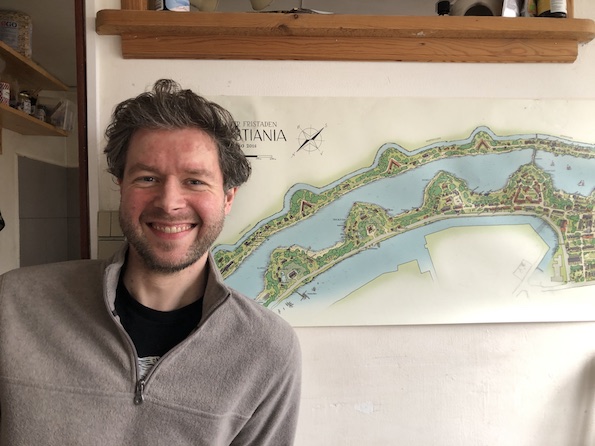
Samuel helps CAKF with accounting.
CAKF is Christianias Culture Union
To CAKF on Facebook (in Danish)
- - - - - - - - - - - - - - - - - - - - - - - - - - - - - - - - - - - - - - - - - - - - - - - - - - - -
22nd og January 2021 - 24th of January 2021
Indkøbscentralen is being renovated
CRIR helps accomodating helping friends from outside.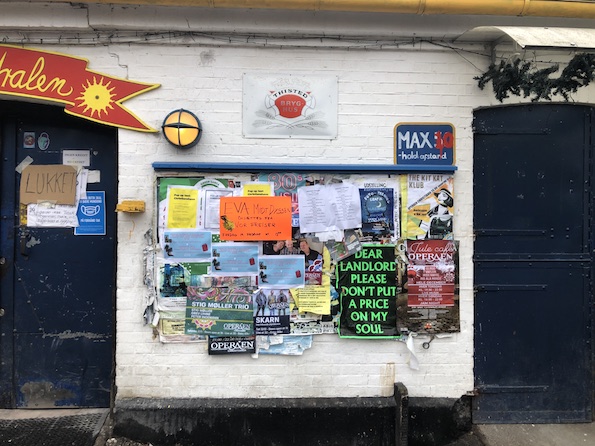
Christiania´s main store is being refurbished.
The Corona virus Covid19 demands from the authorities has closed down the entrances to Christiania.
That seriously reduces the amount of customers in the lockdown period.
The group behind Indkøbscentralen has taken the initiative to renew our great shop
- - - - - - - - - - - - - - - - - - - - - - - - - - - - - - - - - - - - - - - - - - - - - - - - - - - -
8th of November to 22nd of December 2020
Laila Kalistiina and Inga Hansen
hermed en glædelig vintersolhvervsdags hilsen.https://www.youtube.com/watch?v=kg9TJQdsru0
Hjertelige hilsener,
Laila Kalistiina
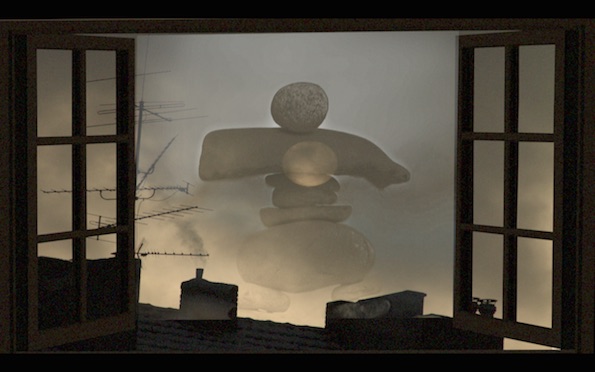

- - - - - - - - - - - - - - - - - - - - - - - - - - - - - - - - - - - - - - - - - - - - - - - - - - - -
1st of October 2020 to 28th of October 2020
Francois Bellemare
Ex Christianite doing research for a publication in french about Christianias 50 years
Jeg er på besøg på Staden (hvor jeg selv boede i 80erne), for at arbejde sammen med Ole fra ChristianiaArkivet på en fransk udgivelse om Staden som eksperiment.Udgivelsen er en del af et større projekt til næste år i Université du Québec à Montréals Design Centre (som beskæftiger sig med forskellige typer design: industrielle design/arkitektur/byplanlægning).
Projektet skal præsentere diverse varianter af “overkommelig bolig” (affordable housing): kooperativbolig, studiebolig, ældrebolig, andelsbolig og flere løsninger, rettet mod den dårlige boligsituation der har udviklet sig pga. boligspekulationen i mange vestlige storbyer. Et kapitel bliver om Christianias 50 år.
Under mit ophold samler jeg dokumentation (kort, billeder, tegninger, fotoer), laver interviewer med gamle og nye beboere, osv. Jeg også tager nye billeder af CAs bygninger fra samme vinkel som gamle fotos, for at kunne vise hvordan stederne har udviklet sig. Det er spændende at se hvor mange forskellige billedvinkler der kan findes her…
og mange personlige synspunkter !
--François, tlf. 71 34 20 60
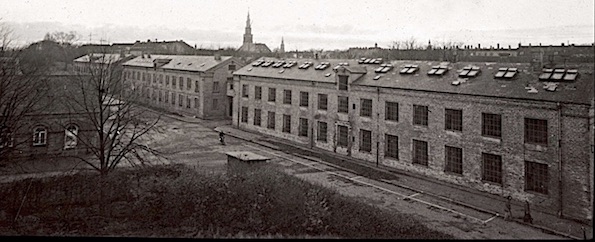
Mælkevejen på Christiania, ca. 1971, sandsynligvis set fra Løvehuset
- - - - - - - - - - - - - - - - - - - - - - - - - - - - - - - - - - - - - - - - - - - - - - - - - - - -
30th of September 2020
Virtual tour of Christiania and talk on Zoom
For HERA participants and associates
Founded in 1971 as an alternative squatter community, Christiania in Copenhagen has from the very beginning been dealing with issues related to the emerging hash marked in Pusher Street.In this public talk, long term Christiania citizen Emmerik Warburg will unfold the history of the self-organized community Christiania. Human geographer Anders Lund Hansen from the Lund University and Aarhus University will complement with insights into how the governing of Christiania as a narcotic space is linked to process of gentrification.
We will hear about Christiania´s ideals of direct democracy and its struggle for survival through different phases of resistance against normalization. Throughout its history Christiania has been keen to have a liberal view on hash -- as opposed to hard drugs. Today thousands of buyers get their hash in Pusher Street, making the police force a daily aggressor in the community.
How does the citizens of Christiania handle that “war-like” situation? And how does this present “war” clash with Christiania´s own politics around consensus and accept of hash as a legal drug?
HERA
About the ProjectHow does drug use affect urban public space? And how do urban governments, authorities and city dwellers react to public drug use? This project examines these questions for nine European cities in the past fifty years from multiple perspectives, including that of users.
The aim is to increase understanding of urban drug cultures and analyse when drug use in public space becomes contested, regulated or facilitated in the urban environment. More information under:
www.narcotic.city
- - - - - - - - - - - - - - - - - - - - - - - - - - - - - - - - - - - - - - - - - - - - - - - - - - - -
25th of September 2020 to 29th of September 2020
Alex - friend of Mælkebøtten
Ex Christianite
Borrowing the CRIR while refurbishing a Mælkebøtten home- - - - - - - - - - - - - - - - - - - - - - - - - - - - - - - - - - - - - - - - - - - - - - - - - - - -
1st of September 2020 to 25th of September 2020
Visits cancelled
due to the current Corona threat
- - - - - - - - - - - - - - - - - - - - - - - - - - - - - - - - - - - - - - - - - - - - - - - - - - - -
29rd of August 2020 to 1st of September 2020
Shanna Jensen and Jens Engedal
Christianites and neighbors
Borrowing the CRIR while refurbishing their Mælkebøtten home- - - - - - - - - - - - - - - - - - - - - - - - - - - - - - - - - - - - - - - - - - - - - - - - - - - -
2rd of August 2020 to 28th of August 2020
Anders Lund hansen and Louise Fabian
Researchers and steering group members
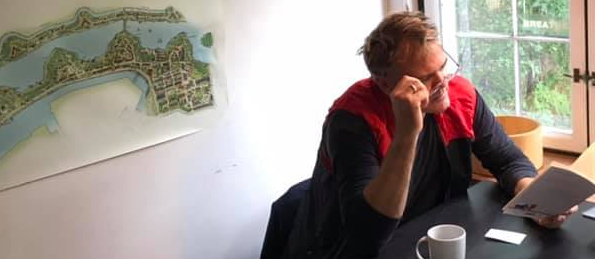
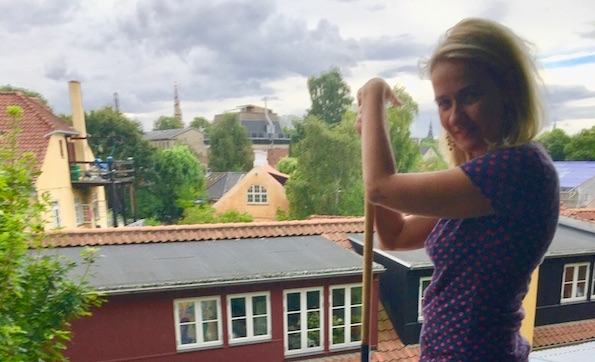
Alternative Spaces, (Self)Governance, ethnicity and marginalization
The case study explores how the politics of governing drug and marginalized citizens have changed over time, according to shifting visions of the welfare state, social politics and shifting ideologies of state interventions aimed at supporting and/or controlling the more deprived and socially vulnerable populations.
In Copenhagen we study Christiania as an alternative public space, a former squatter community and laboratory for alternative everyday urbanisms, democratic organization, strategies of drug governance, and social and environmental justice.
We explore the intersection of the governing and regulation of Christiania as a “narcotic city” on the one hand and gentrification processes on the other.
https://narcotic.city/project-research/case-studies/
Anders Lund Hansen, Reader
Department of Human Geography
Lund University.
Visiting Professor
Department of Philosophy and History of Ideas
Aarhus University.
Louise Fabian Associate Professor PhD
Department of Culture and Society
University of Aarhus.
- - - - - - - - - - - - - - - - - - - - - - - - - - - - - - - - - - - - - - - - - - - - - - - - - - - -
30 of July 2020 to 20th of August 2020
Ruben Bygvraa
Artist
Ruben is back and ready for cooperation!- - - - - - - - - - - - - - - - - - - - - - - - - - - - - - - - - - - - - - - - - - - - - - - - - - - -
all July 2020
Ida Juutilainen
archivist
The CRIR Secretary is organizing our online archive.- - - - - - - - - - - - - - - - - - - - - - - - - - - - - - - - - - - - - - - - - - - - - - - - - - - -
7th of July 2020 to 14th of July 2020
Andreas kupsch
Gardener
Andreas is here again to make sure the house is fine. Thanks!- - - - - - - - - - - - - - - - - - - - - - - - - - - - - - - - - - - - - - - - - - - - - - - - - - - -
14th of June 2020 to 29th of June 2020
José Barbosa
Researcher
My name is José and I will be staying for two weeks at the Christiania Research in Residence house. I study architecture at Lund University in Sweden, and I will be conducting research for my masters thesis. The subject of my thesis is about transgression in architecture, so I will be looking into to the social, spatial and material transgressions that have occurred and are still occurring in Christiania.A simplified way to describe transgression can be to say it is the action of breaking a law or rule. However, the breaking of these rules has much more to do with breaching accepted norms, practices, conventions and limits. The term transgression thus becomes a valuable source in which to investigate how architecture and design can challenge accepted practices and norms.
Hopefully, I will be able to look at some of the unique architecture and spaces within Christiania. Not only look at the past, and present but also look at what prospects Christiania might have for the future.
- - - - - - - - - - - - - - - - - - - - - - - - - - - - - - - - - - - - - - - - - - - - - - - - - - - -
1st of June 2020 to 14th of June 2020
Ruben Bygvraa
Artist
CV2019-20. Kgl. Danske kunstakademi Billedhuggerskolen udveksling fra UDK.
2016-19. Bildende Kunst UDK Professer Manfred Pernice Classe Object-Bild-Hauerie
2015-19. Assistent Metal værksted Studio Olafur Eliasson
2015-16. Kunstskolen Spektrum København
2013-14. Kgl.Kunstakademiets Designskole København
2011-13. Pädagoge Galaksen/Engskolen. København
2008-11. Teater kulissebygger Folketeateret København
2004-08. Smed PMJ København
- - - - - - - - - - - - - - - - - - - - - - - - - - - - - - - - - - - - - - - - - - - - - - - - - - - - --
OPEN CALL 2019-2020
CHRISTIANIA RESEARCHER IN RESIDENCE (CRIR)
The ‘free city’ Christiania in Copenhagen will soon be celebrating its 50 year anniversary.. The area is a vibrant, important and highly contested piece of urban commons in the very centre of Denmark’s capital city. ‘The right to the city’, ‘use value’ vs. ‘exchange value’, ‘the right to nature’, ‘the right to be different’, ‘social justice’ and much more are here important elements in the struggle over space. Not long ago, Christiania reached an agreement with the Danish state after more than forty years of struggle and negotiations, and the so-called ‘Christiania Foundation’ has now bought part of the area from the Danish state. Christiania has therefore changed status from a squatter community to an area that is partly owned by an independent ‘land trust’. This has many implications for the community.
Christiania Researcher in Residence (CRIR) offers residency for artists and academic researchers with a specific interest in Christiania as an important field of study.
Time of residency is typically 1-4 weeks depending on the project. The aim of the Christiania Researcher in Residence project is to involve artists, researchers and academics in an open, critical and reflective dialog around the free town Christiania, and to feed new creative and critical thinking back to the community and into the public realm globally. Christiania's insight and experience into local organization, alternative architecture, lifestyle, culture, sustainable environments, quality of life, democracy and innovation is unique in the world and could generate important knowledge that may inspire alternative urban thinking.
The house is run on a non-profit basis. CRIR receives some funding from the community of Christiania and support from the local community. Researchers must cover expenses for water, electricity, heat and laundry and pay a basic expense of 500 DKK for the use of the house per week. Researchers with paid jobs or research/arts funding are expected to pay 1000 DKK per week...
How to apply?
To apply you should to write a short application. You need to:
- Describe your project.
- Explain your project's expected audience and method of distribution in Denmark and/or abroad.
- Explain how your project will be communicated internally in Christiania.
- Indicate your preferred period of stay (typically 1-4 weeks).
- Ethical considerations
(This is important. There are many guidelines for conducting ethically sound research and artistic interactions with community partners. Here is an example:
https://www.livingknowledge.org/fileadmin/Dateien-Living-Knowledge/Dokumente_Dateien/Toolbox/LK_A_CBPR_Guide_ethical_principles.pdf)
Send your application to: idajuu@gmail.com
Applications are dealt with on a continuous basis but the sooner we receive it, the better the chances for finding a free time slot. The steering group will evaluate your application and we will get in touch with you as soon as possible.
For more info go to: http://crir.net/apply.html
Anders Lund Hansen, associate professor
Department of Human Geography
Lund University
Visiting Professor
Department of Philosophy and History of Ideas
Aarhus University
- - - - - - - - - - - - - - - - - - - - - - - - - - - - - - - - - - - - - - - - - - - - - - - - - - - -
20th of January 2020 to 31st of January 2020
Alex Kaufmann
Former inhabitant of Mælkebøtten
- - - - - - - - - - - - - - - - - - - - - - - - - - - - - - - - - - - - - - - - - - - - - - - - - - - -
28th of December 2019 to 6th of January 2020
Lise Autogena and Joshua Portway
Member of the CRIR steering group
Lise and Joshua are based in London, UK.Revisiting the CRIR House and Christiania in connection with the plans for a new house on the premise
- - - - - - - - - - - - - - - - - - - - - - - - - - - - - - - - - - - - - - - - - - - - - - - - - - - -
6th of December 2019 to 28th of December 2019
Stuart Warren
Sociology graduate student
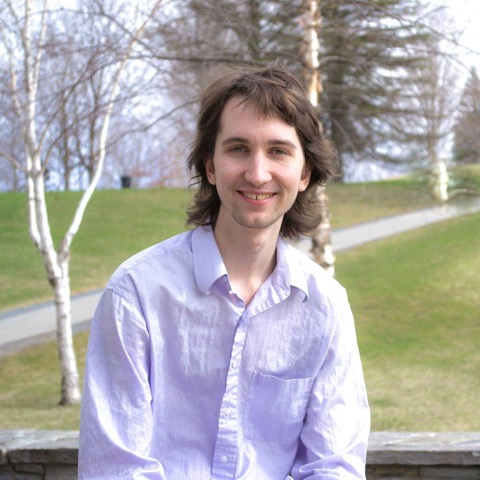
from Carleton University, Ottawa, Canada, who researches mental disability and consensus-based decision making processes.
Christiania is the case study of Stuart's thesis, which theorizes compulsory able-mindedness and its antidotes in the field of disability studies.
Stuart's other interests include drumming, composing music, acting, psychology, political philosophy, worker-owned co-ops, and consensus-based social services.
- - - - - - - - - - - - - - - - - - - - - - - - - - - - - - - - - - - - - - - - - - - - - - - - - - - -
27th of November to 4th of December 2019
Andreas Kupsch
Gardener
Andreas is here to help renewing the CRIR house- - - - - - - - - - - - - - - - - - - - - - - - - - - - - - - - - - - - - - - - - - - - - - - - - - - -
15th of November 2019
Can Mert Kökerer
Paper released:
Art and Politics in Freetown Christiania: a Benjaminian and Brechtian Utopia?
abstract
In this paper, which is positioned at the intersection of political sociology and the sociology of art, I discuss the implications of political art at the local level. I show how analyzing an existing example of locally engaged political art would contribute to the comprehension of the relationship between art and politics in contemporary societies.I employ a single case study, Freetown Christiania, in order to reveal the role of local artistic engagement in bringing about political outcomes, and in particular, relative autonomy at the local level. Though this study is solely focused on one community which has emerged within a specific context and time, it provides a unique lens to describe the relevance and potential of locally engaged political art for broader society.
I utilize Freetown Christiania as an example of Benjaminian and Brechtian utopia in order to showcase how their micro-level artistic engagement has brought about relative autonomy at the local level. In particular, I describe the function of local artistic engagement in Freetown Christiania, especially their theatre group Solvognen (The Sun Chariot), as a unique artistic enterprise which has surpassed Benjamin’s and Brecht’s elaborations of the role of political art in modern societies through the employment of the elements of the avant-garde and postdramatic theatre.
I argue that this peculiar combination of Benjaminian and Brechtian forms of political art on the one hand, and the avant-garde and postdramatic theatre on the other, has enabled them to create and sustain this micro-utopia in a neoliberal capitalist order.
link to Article
- - - - - - - - - - - - - - - - - - - - - - - - - - - - - - - - - - - - - - - - - - - - - - - - - - - -
25th of August to 15th of September 2019
Matthew Buckingham and Joachim Koester
the Video installation: 'Sandra of the Tuliphouse or how to Live in a Free State’
at Byens Lys, backstage
The current exhibition is curated by Ann Sophie von Bülow (b. 1987) who is a visual artist that has grown up in Christiania. von Bülow is the founder of Det Kosmiske Hierarki — a series of art activities and exhibitions on the grounds of Christiania the year 2019-2020.Each activity will be published weekly in Ugespejlet and archived online in the database at detkosmiskehierarki.org
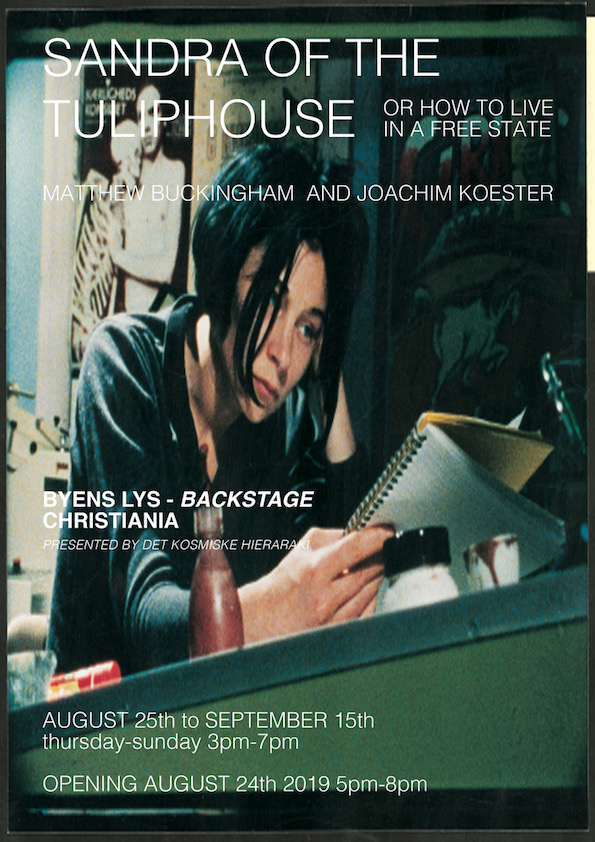
- - - - - - - - - - - - - - - - - - - - - - - - - - - - - - - - - - - - - - - - - - - - - - - - - - - -
25th of August to 17th of November 2019
Cecilie Skov
the Installation 'Whileaway' at Fremtidsskoven
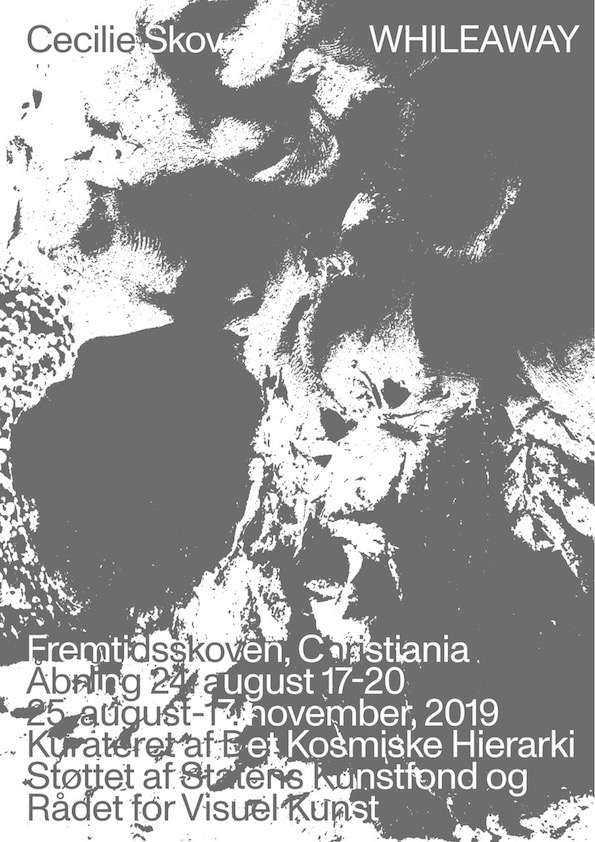
Whileaway is not at the CRIR house - it is curated by Det kosmiske Hierarki (detkosmiskehierarki.org)
- - - - - - - - - - - - - - - - - - - - - - - - - - - - - - - - - - - - - - - - - - - - - - - - - - - -
5th of August to 26th of August 2019
Urszula Jablonska
Journalist/Writer
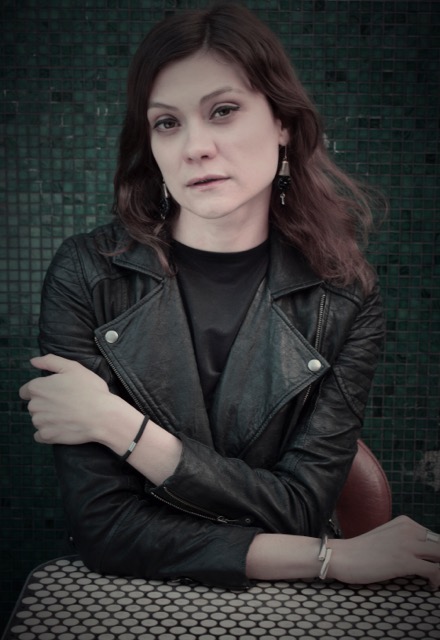
I am a writer specializing in long-form journalism and non-fiction literature. I am based in Warsaw/Poland. Currently, I am working on a book about intentional communities in Europe from the 60s until today. In my research I want to focus on ideas, such as collective ownership, direct democracy, new family models, collective raising of children, ecology and see, how they are put in practice in different settings.
In Christiania I would like to research the topic of direct democracy by consensus and collective decision making. I would like to research its history – how the idea of consensus was born? Did it evolve in any way? How were the first rules implemented? How consensus was used in the times of peace and times of crisis?
But most importantly I would like to take part in community meetings to see how decisions are made today, how different issues of everyday life are resolved and to interview various Christianites about their experiences in the consensus meetings and their visions of direct democracy.
Thank you for having me in CRIR!
- - - - - - - - - - - - - - - - - - - - - - - - - - - - - - - - - - - - - - - - - - - - - - - - - - - -
6th of July to 29th of July 2019
Tauno Biltsted
Researcher and Writer
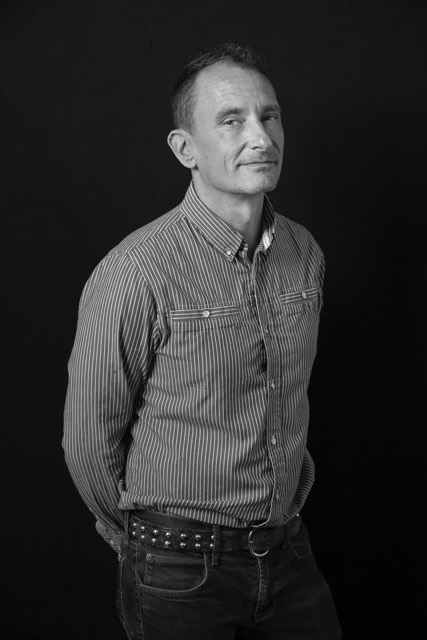
I am interested at looking at the practices of consensus decision-making within the community in Christiania. Trained as a mediator and group facilitator, I work on conflict resolution and the facilitation of creative dialogue between neighbors, family members, activist groups, community groups, and arts groups in New York City, where I live.
I come to this work through lived experience: I live in a squatted building on the Lower East Side of Manhattan, the Umbrella House, where we are self-governing and operate on a consensus basis, and know intimately both the occasional frustration and the magic that emerges through self-governance and cooperation across differences.
Through interviews, observation of meetings, and facilitated dialogues between community members, I hope to use my residency to build an understanding of the tools and practices developed in Christiania over 48 years of experimentation, struggle, planning, parties, actions, joy, and community.
- - - - - - - - - - - - - - - - - - - - - - - - - - - - - - - - - - - - - - - - - - - - - - - - - - - -
29th of June to 6th of July 2019
Andreas Kupsch
Gardener
Andreas is here to help renewing the CRIR houseTake a look at our site for the work:
https://newcrirhouse.wordpress.com
- - - - - - - - - - - - - - - - - - - - - - - - - - - - - - - - - - - - - - - - - - - - - - - - - - - -
24th of June to 28th of June 2019
Leonardo Nogueira de Moraes
Tourism Development and Local Resilience: Self-Organisation and Community Empowerment Perspective
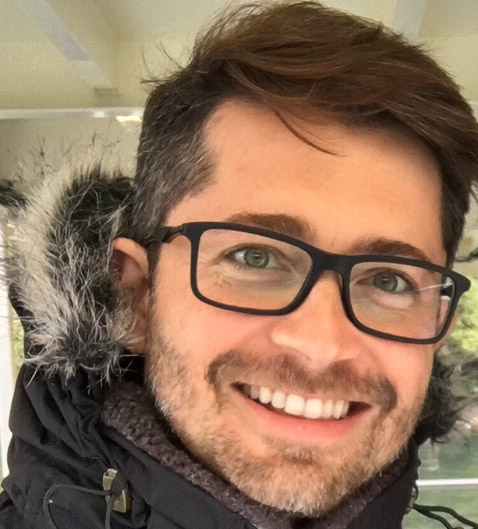
am a postdoctoral research fellow at the University of Melbourne (Australia) with a background in sustainability and tourism studies, currently looking at questions of urban planning and resilience.
During my residence in Christiania, I will seek to engage with the local community to understand the different relationships between tourism and resilience from a perspective of community empowerment and self-organisation.
This exploratory research is part of a project that also looks at Norfolk Island, Lord Howe Island and Port Fairy (Australia).
I look forward to learning more from local experiences and to engaging in insightful conversations and in knowledge exchange.
Thank you in advance for your kind hospitality,
Leonardo
- - - - - - - - - - - - - - - - - - - - - - - - - - - - - - - - - - - - - - - - - - - - - - - - - - - -
20th of June 2019
Roxanne Glick: New Master thesis
"Designing the Commons:
Places that Support Community Ownership"
Read more here: https://www.behance.net/user/?username=RoxanneGlick
Roxanne was a CRIR guest in December 2018 researching the Christiania house ownership model.
- - - - - - - - - - - - - - - - - - - - - - - - - - - - - - - - - - - - - - - - - - - - - - - - - - - -
11th of June to 24th of June 2019
Lena Riechert Evald
City-, Energy- and Environmental planning Aalborg University, Copenhagen
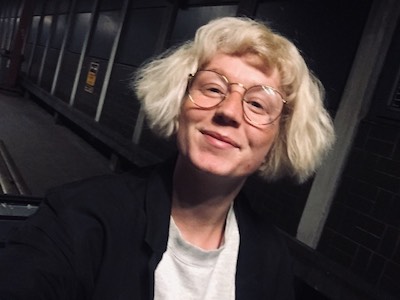
During my stay at CRIR I will in collaboration with a group from Aalborg university work on planning a new renewable heating supply on Christiania.
Through identification of challenges within the current system, we develop scenarios for possible future heating supply systems that meet these, with an ambition to create a system that is based on as much renewable energy as possible, without compromising on local values. Furthermore our plan is to develop information material to use in a future dialogue about the development of a new heating supply system at Christiania.
Thank you for having me at CRIR
Lena
- - - - - - - - - - - - - - - - - - - - - - - - - - - - - - - - - - - - - - - - - - - - - - - - - - - -
6th of June to 10th of June 2019
CRIR workshops
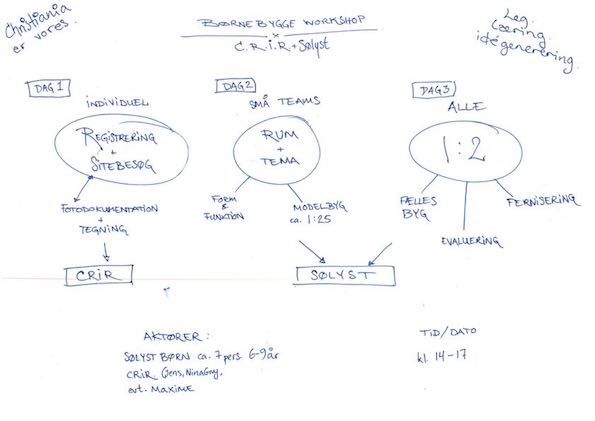
Input plan to workshop 1
including young persons from our after school home "Sølyst"
- - - - - - - - - - - - - - - - - - - - - - - - - - - - - - - - - - - - - - - - - - - - - - - - - - - -
4th of June to 10th of June 2019
Francois Bellemare
from Montreal (Quebec, Canada)
Mælkebøtten´s old friend and ambassador to the Christiania Embassy in Quebecis here with his 2 kids presenting his canadian television talk with danish subtitles
Link: Fristadens Ambassade. Offentliggjort den 24. maj 2019
- - - - - - - - - - - - - - - - - - - - - - - - - - - - - - - - - - - - - - - - - - - - - - - - - - - -
6TH of May 2019
masterworkshop for phd students
phd students at kunstakademiet in Copenhagen are interested in visiting and learning from the CRIR.Lise Autogena lectures.
- - - - - - - - - - - - - - - - - - - - - - - - - - - - - - - - - - - - - - - - - - - - - - - - - - - -
1st of April 2019 to 30st of April 2019
Rodrigo Márquez Tizano
Writer

During my residence at CRIR, I will focus on the research phase of a documentary theatre-book project that involves Christiania Sports Club and Jonás Miller, a former Mexican footballer who lived in the late 80’s Christiania. By digging in the club's history I will also remark the importance of sport in Christiania as a force of social good in the community. By interviewing players, former players, managers, board members, fans and neighbors I expect to portray the real importance and transcendence of the football in this unique and extraordinary political and social space. Is football nowadays still a social value, capable of capturing the essence of the game? As pro sports are experiencing the logical consequences of an unsustainable financial model that exploits fandom rather than focusing on the social impact that sport can make, CSC appears as a unique case in the world. Why do a mutually-owned club in a semi-professional football league has so much relevance in a place that struggles with other kind of issues, usually seen as more important, like security, the fight for autonomy or multiculturalism?
The intersections between sport and society is one of my fields of interest. I’m a founding editor in La Dulce Ciencia Ediciones, a publishing house specialized in boxing, Esquina, a magazine devoted to the critical analysis of the ways in which other media –film and literature, mainly– represented boxing and boxers, as well as “Puños y Libros” a project dedicated to donate book collections and create libraries in boxing gyms where children from low-income families attend. Also, last year I edited Breve historia del ya merito, a political and social history of the Mexican National Football Team.
Rodrigo Márquez Tizano (Mexico City, 1984) is a writer. So far he has published two short story collections and a novel. He has been the editor in chief of VICE magazine in Mexico and Argentina and received his MFA from NYU. Yakarta (Sexto Piso, 2016 — Coffee House Press, 2019) is his latest book.
- - - - - - - - - - - - - - - - - - - - - - - - - - - - - - - - - - - - - - - - - - - - - - - - - - - -
March 2019
2 Hong Kong newspaper "Ming Pao"
Christiania articles
By Swing Lam
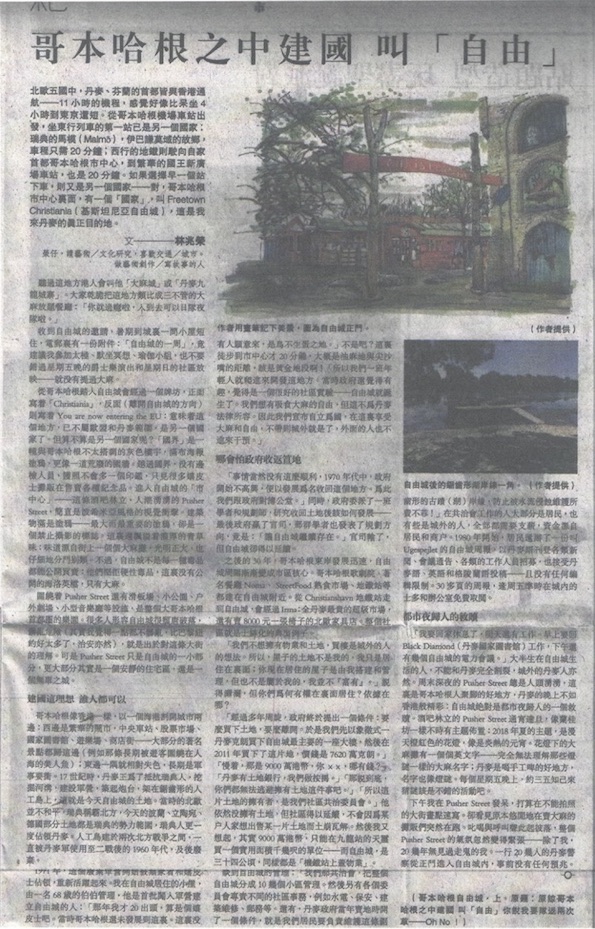
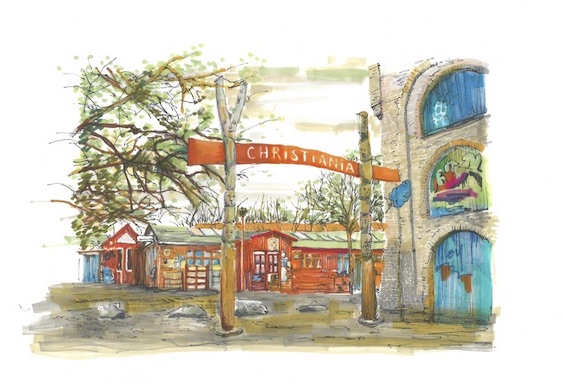
Artwork by Swing Lam 2018
- - - - - - - - - - - - - - - - - - - - - - - - - - - - - - - - - - - - - - - - - - - - - - - - - - - -1st of March 2019 to 31st of March 2019
Thomas Smith
Postdoctoral researcher
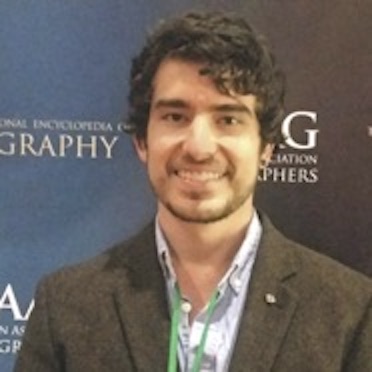
I’m a human geographer based in the Department of Environmental Studies at Masaryk University in Brno, Czech Republic.
My interests relate to craft, skill, and repair in community economies, asking larger questions around how we cultivate economic democracy, conviviality, and post-growth/degrowth economies.
During my time in the CRIR house – as part of the early stages of a book project I’m developing – I want to look at economic diversity in Christiania, beyond the attention received by Pusher Street.
In particular, I want to focus on the role of workshop enterprises and craft skills, both historically and in the present day.
The project will explore the communities of practice and skill which are maintained and reproduced in and through these spaces, and how they influence everyday life and infrastructures at Christiania.
I’d be really excited to talk to anyone from the Christiania community who is interested and can either be reached at the CRIR house, or by e-mail at smith@fss.muni.cz
- - - - - - - - - - - - - - - - - - - - - - - - - - - - - - - - - - - - - - - - - - - - - - - - - - - -
5th of February 2019 to 12th of February 2019
Andreas Kupsch
Gardener
Andreas is checking up on the garden and the ramparts.- - - - - - - - - - - - - - - - - - - - - - - - - - - - - - - - - - - - - - - - - - - - - - - - - - - -
5th of January 2019 to 4th of February 2019
Alyssa Keil
Artist
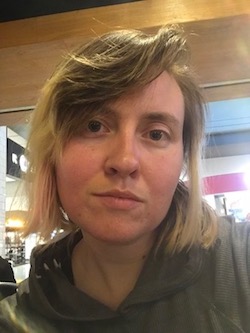
I am interested in studying the history and conditions of media and telecommunications in Christiania, specifically focused on the television station and the way its programming been organized and circulated.
I also am an artist interested in sound (drum machines, samples), painting, and media - I am equally interested in exploring my own artistic expression in this residency as well as the ways in which media and television - a medium that has been called “ the most popular art” - functions in Christiania; an entity unlike any other.
How is television consumed and utilized in a space like Christiania? How has television - whatever that is these days - morphed in an age where screens can fit in our hands and can be utilized based on our own whims and desires?
What unique concepts can be learned from the ways television is used in a community like Christiania; and in what ways can our understandings of media help us to organize our understandings of artistic expression, architecture, society and community?
- - - - - - - - - - - - - - - - - - - - - - - - - - - - - - - - - - - - - - - - - - - - - - - - - - - -
24th of November to 22nd of December 2018
Roxanne Glick
Landscape architect
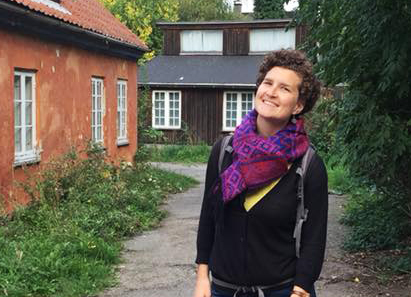
I am a masters of landscape architecture student from the University of Washington in Seattle. I'm currently on a Valle Fellowship in Copenhagen to study housing ownership models and how they affect the creation of common spaces and people's sense of community and ownership in their homes. Over four months I'm doing case studies different types of community-controlled housing including social housing (almene boliger), private cooperatives (andelsforeninger), and Christiania.
My research is asking of each housing model: In what forms of community ownership, resident democracy and self-management do residents feel ownership over common spaces and affect the original and ongoing design process and creation of physical space? Is a sense of community ownership over common spaces unique and valuable for creating a sense of belonging, community, solidarity? In the scope of my project, Christiania is one end of the spectrum with strong community control over housing and its common spaces. It is instructional and inspirational that such places exist, and thus I would like to provide an accurate account of it as part of my research project, presented alongside other housing models.
I am interested in what strategies might be applicable to the Seattle area and US context. Christiania's success could spark Seattleites' imaginations about what it would be like if the Native American occupation of a Seattle army base Fort Lawton in 1970 had succeeded. As the affordable housing crisis in Seattle deepens, there is discussion of re-purposing public golf courses for affordable housing. The real, legitimate, and radical story of Christiania would push the boundaries of public debate in Seattle, which prides its self for being open-minded and is open to new ideas in the face of our housing crisis.
I plan to share the knowledge I gain in my larger project (including a case study on Christiania) through one or more public presentations and articles to an academic audience and housing/urbanist audience in Seattle and potentially through an exhibit at the Nordic Heritage Museum in Seattle with other Valle-funded work. I will make a podcast episode for the We Belong podcast about Christiania to be distributed though Cascadia Underground in Seattle.
I am seeking a handful of Chrisianites who would like to be interviewed about their experiences living in the community. I would also like to hold an event a week before the end of my stay to elicit feedback on draft versions of the podcast episode and case study report so I can make changes before releasing revised versions electronically to the community for more feedback before they are released publicly.
- - - - - - - - - - - - - - - - - - - - - - - - - - - - - - - - - - - - - - - - - - - - - - - - - - - - -
31st of October to 6th of November
Andreas Kupsch
Gardener
Back on the block- - - - - - - - - - - - - - - - - - - - - - - - - - - - - - - - - - - - - - - - - - - - - - - - - - - - -
1st of October to 31st of October 2018
Zara Burton - and Alexander Burton
The public/media discussion surrounding Christiania is focused on the tensions that arise from Pusher St.I would want to create an experiemental map during my time that celebrates the ecological diversity and the radical and innovative culture of cooperation.
I would plan on walking the site with residents to create the map and also find locals with extensive knowledge of the biodiversity of the landscape and its history.
I'd present it with an accompanying research summary to the community and then circulate a press release focusing on Danish Media and English media channels through a managed and strategic pr campaign.
Hopefully. the mapping exercise will allow people the public, media, and maybe even the residents to see the site with fresh eyes and optimism - strengthening the message.about the vital role that Christiania plays in society.
Zara Burton
- - - - - - - - - - - - - - - - - - - - - - - - - - - - - - - - - - - - - - - - - - - - - - - - - - - - -
9th of September to 30th of September 2018
Jilly Traganou
Researcher
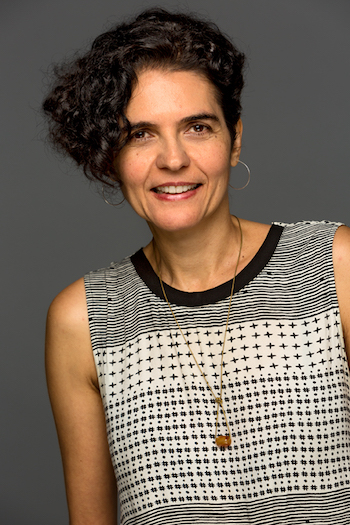
I am an architect by training, and Associate Professor at Parsons School of Design in New York.
During my residence at CRIR I will look at the socio-material making of Christiania as a space of prefigurative politics.
“Prefigurative” politics strive to provide living examples of alternative social formations, by creating the new “in the shell of the old.” Through my research, I will try to find out how residents of Christiania created such a space, whether Christiania has inspired other such prefigurative political spaces, and what is its relation with more recent groups that also strive for socio-political change.
Looking at Christiania’s history, I am also interested to examine the changes from the “insurgent autonomy” that characterized its emergence in the early 1970s to the “regulated autonomy” that we see today in the new articulation of Christiania’s relation to the city and the state through the so-called process of “normalization” (Coppola and Vanolo). During my research I will focus on the ways prefiguration is achieved by spatial and material actions. I am particularly interested to look at collective processes and regulatory frameworks, such as the thematic meetings of Christiania, especially the building, house and common meetings, as well as the new processes of building approval that are necessitated in the context of “normalization.”
My research findings will appear in my forthcoming edited volume Design and Political Dissent: Spaces, Objects, Materiality (Routledge). You can find more about my academic profile here: Parsons School of Design
- - - - - - - - - - - - - - - - - - - - - - - - - - - - - - - - - - - - - - - - - - - - - - - - - - - - -
6th of September 2018 to 8th of September 2018
Shelagh Wright and Peter Jenkinson
Researchers
Peter and Shelagh are at the CRIR House Freetown Christiania for an initial short stay to help make links between the work of the CRIR House and other cultural research spaces seeking enquiry into resistance, deviance and independence as well as relationships with more formal progressive 'politics' in Copenhagen, and Denmark and wider contexts. This brief residency will build on the work of David and Ruwanthie with whom they often collaborate and will continue into the future.There are three core strands to Peter and Shelagh's current work:- exploring positive deviance around the world; working with the new municipalism movement: and supporting radical progressive politics based on creative and cultural development.
They will use their time in CRIC House to learn more about how the community creates decision-making and consensus, how it relates to the wider community of Copenhagen within which it is situated, and how its story could be shared and amplified.
Whilst at CRIC House Peter and Shelagh will also meet with the Copenhagen City Deputy Mayor for Culture and two Danish MPs from the Alternativet Party for whom they act as UK Ambassadors.
Peter and Shelagh are cultural change agents and creative brokers based in London but working extensively around the world supporting the 'underpower' of creative deviance and development in multiple communities with a range of cultural, civic and intermediary actors.
- - - - - - - - - - - - - - - - - - - - - - - - - - - - - - - - - - - - - - - - - - - - - - - - - - - - -
30th of August to 6th of September 2018
David Cotterrell and Ruwanthie de Chickera
Researchers
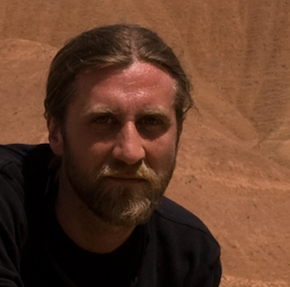

are in Freetown Christiania in order to consider lessons to be learnt from alternate urban communities.
They are seeking to explore and compare the governing principles of closed communities - be they military bases, diplomatic enclaves, refugee camps, cooperative moorings, prisons or squatter collectives - in order to understand some of the fundamental similarities and differences. Ruwanthie and David will use their time at CRIR to learn more about the unique organisational systems of the Freetown area and its community.
Within the context of their ongoing Empathy and Risk project, they hope to develop curatorial methods to facilitate arts based interventions and arts led conversations concerning the parallels and contradictions in these seemingly mutually exclusive communities.
David Cotterrell Biography:
David Cotterrell is an installation artist working across media and technologies to explore the social and political tendencies of a world at once shared and divided. Encapsulating the roles of programmer, producer and director, Cotterrell works to develop projects that reveal complexity, challenge linear narratives and embrace the quiet spaces that are overlooked as the sites for action.
Cotterrell’s work has been commissioned and shown extensively in museums, galleries and the public realm within Europe, North America and Asia. He has worked in conflicted landscapes, has been a consultant to strategic masterplans, and has developed cultural and public art policy for urban regeneration, healthcare and growth areas. He is Research Professor in Fine Art at Sheffield Hallam University and a recipient of the Philip Leverhulme Prize.
Further information can be found at http://www.cotterrell.com
Ruwanthie de Chickera Biography:
Ruwanthie de Chickera is a playwright, screen-writer, theatre director and cultural activist. De Chickera has a strong belief in the practice, politics and philosophy of ‘devising’ – a theatre approach of collective creativity and leadership that challenges existing structures of authorship, power sharing and change.
Her award winning film “Machan” has been screened in over 50 countries. De Chickera is artistic director of Stages Theatre Group, an ensemble theatre company that produces socially and politically conscious original Sri Lankan Theatre. She is an Eisenhower Fellow and head of Research and Writing of the Arts and Cultural Policy Desk in Sri Lanka, a citizens initiative, mandated to draft the National Arts and Cultural Policy for Sri Lanka
Further information can be found at http://www.dechickera.com
- - - - - - - - - - - - - - - - - - - - - - - - - - - - - - - - - - - - - - - - - - - - - - - - - - - - -
24th of August to 29th of August 2018
ANDREAS KUPSCH
Gardener
- - - - - - - - - - - - - - - - - - - - - - - - - - - - - - - - - - - - - - - - - - - - - - - - - - - - -11th of August 2018 to 24th of August
Nowtopia
Artist
Courtesy the organizers:Pipaluk and Tash Verco
Homepage here
ALICE STEHLICKOVA
Artist
Showing her and Dmitry´s movie in the Grey Hall:Freetopia
- - - - - - - - - - - - - - - - - - - - - - - - - - - - - - - - - - - - - - - - - - - - - - - - - - - - -30th of July to 10th of August 2018
KING AYISOBA
Artists
World famous musician and his group from Ghana is back in Christiania
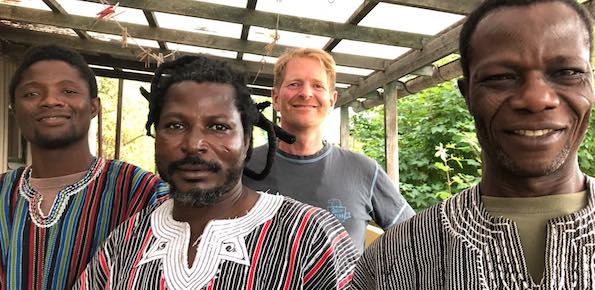
Courtesy Knud Erik Kristensen
- - - - - - - - - - - - - - - - - - - - - - - - - - - - - - - - - - - - - - - - - - - - - - - - - - - - -
July 2018
tina carlisi
Researcher
New essay in Seismopolite.com focus on
Christiania, Ruigoord, ADM and Flydende By
- read it here:
Free Cultural Spaces: Freedom of Expression in Autonomous Geographies
or download as .pdf here- - - - - - - - - - - - - - - - - - - - - - - - - - - - - - - - - - - - - - - - - - - - - - - - - - - - -
26th of June to 26th of July 2018
Swing lam
Artist
Swing Lam (b.1986, Hong Kong) specialises in various art forms, including painting, performance art, temporary architecture research and is involved in cultural and urban sketching studies.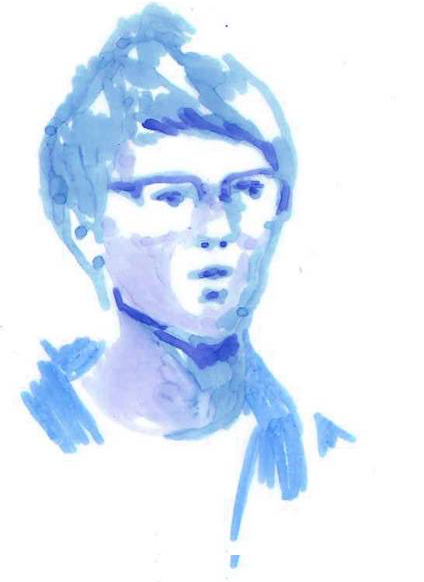
He writes arts and cultural columns for Ming Pao and Stand News amongst others.
He earned a bachelor degree of Visual Arts in HKBU and a MA intercultural studies in CUHK and is one of the fotanian artists concentrated on drawing, painting and happenings.
Swing started the project Flaneur 11 on 2012 spring; a project of walking across 10 cities over the world.
Swing showed his project in Atelier Muji gallery as his first solo exhibition in spring 2013. RTHK also made a documentary of his work in January 2013. In 2014, he developed a facebook page to introduce and study some of the featured architecture, tools and creations found.
It helped the public look into the temporary facilities from an artistic point of view. In the project Swing embraced his experience of walking through cities and his interaction with the public in this public space.
Swing was working as a Lecturer in Lingnan University Community college for Art and design courses, and currently a Tutor in Shau Kee School of Creativity.
- - - - - - - - - - - - - - - - - - - - - - - - - - - - - - - - - - - - - - - - - - - - - - - - - - - - -
1st of June 2018 to 30th of June 2018
Jan Redzisz
Cultural analyst with a background in ethnography
His current ongoing project introduces elements of Systems Theory into innovation and urbanism agenda.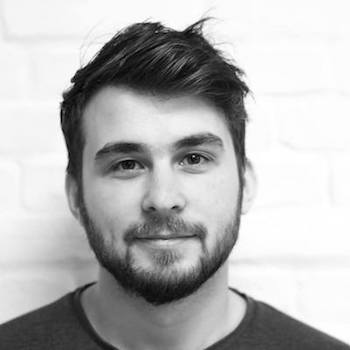
He will explore Christiania from its inner-creativity perspective to document its overall potential in incubating new, alternative lifestyles and solutions, as well as possible ways for them to positively influence innovation exchange with non-utopian communities.
In order to understand what enables that exchange, Jan will look into Christiania's DIY spirit, use of new media, freedom of expression, and overall resourcefulness.
Jan's new way of picturing communities as clusters and hubs could help Christianites see their new hidden roles on the innovation landscape, locally and globally.
- - - - - - - - - - - - - - - - - - - - - - - - - - - - - - - - - - - - - - - - - - - - - - - - - - - - -
1st of May to 31st of May 2018
Andreas Kupsch
Gardener
Revisiting the CRIR and doing repair work- - - - - - - - - - - - - - - - - - - - - - - - - - - - - - - - - - - - - - - - - - - - - - - - - - - - -
Friday 27th of April 2018
Livia Vajdova & Alice Stehlickova
Documentary film Premiere in Byens Lys, Christiania
Link to movie homepage and trailer: https://freetopiafilm.com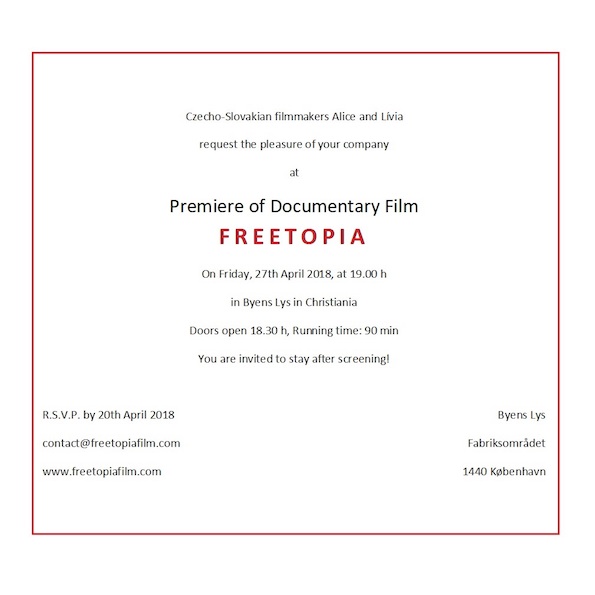
- - - - - - - - - - - - - - - - - - - - - - - - - - - - - - - - - - - - - - - - - - - - - - - - - - - - -
April 2018
Film: Humans of Christiania
by Elena Rubashevska & Dimitry Melnyk
awarded for the 3.time
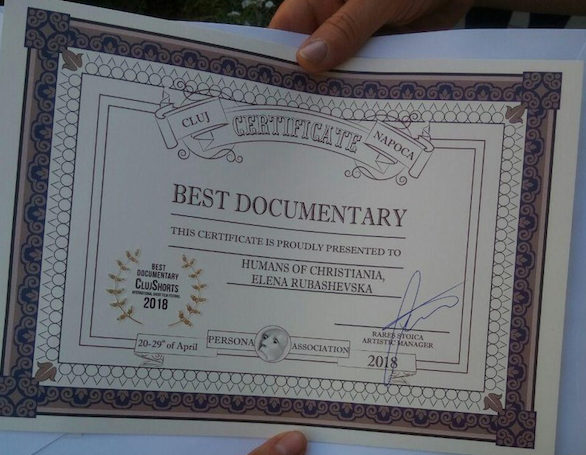
in cluy, Romania
Link to documentary film Humans of Christiania hereAt the end of the April 2018we had Humans of Christiania screened at Cluj Shorts International Film Festival, and got our first international award for best short documentary
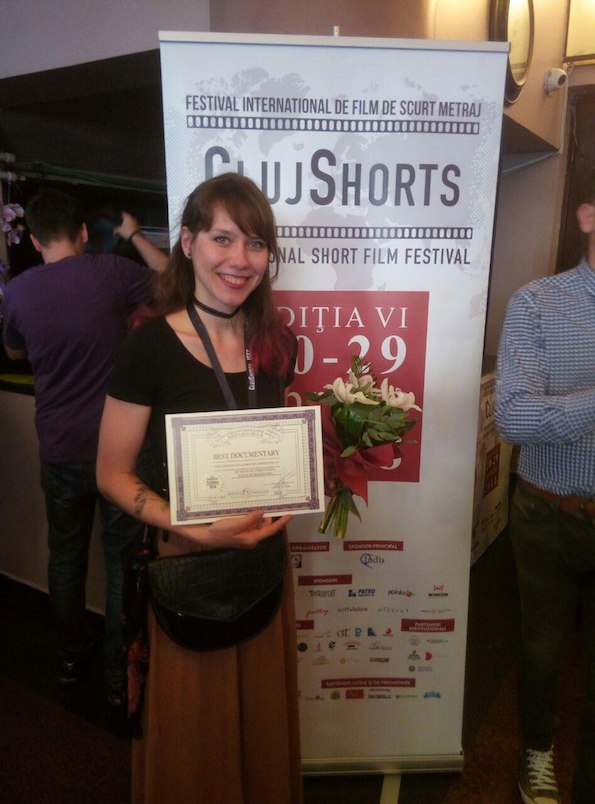
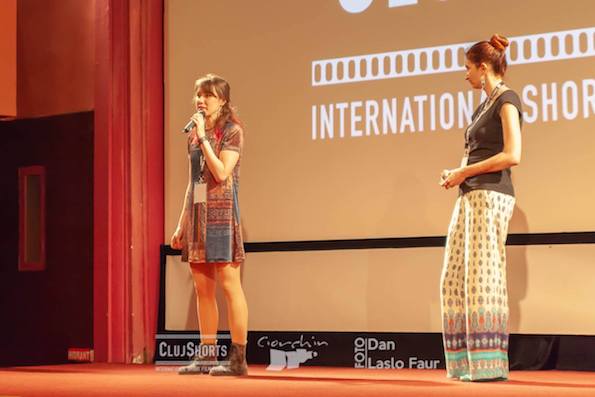
The film is shot while staying at the CRIR residence in January 2017.
Humans of Christiania was also
awarded in Zhovkva, Ukraine in November 2017
(Best Documentary+Special Mention)- And the film was also
awarded at Mariupol in east Ukraine
in September 2017- - - - - - - - - - - - - - - - - - - - - - - - - - - - - - - - - - - - - - - - - - - - - - - - - - - - -
30th of March 2018 to 30th of April 2018
FREJ HAAR
Bachelor of Integrated Conservation of Built Environment
I am a bachelor student in Integrated Conservation of Built Environment from the University of Gothenburg.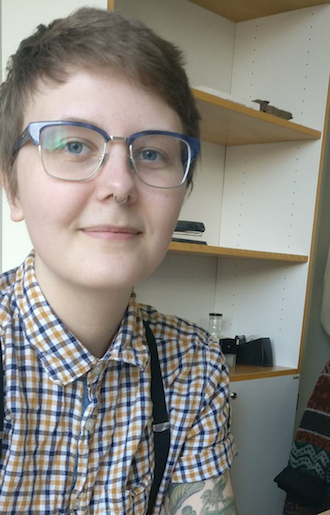
A year ago, I wrote a thesis in history of built environment about Autogena on Dyssen. I am now returning to Christiania to write my bachelor thesis.
In this thesis I am interested in the Christianites’ own interest of preservation. This will involve interviewing residents about their feelings in relation to not only the built environment, but also less tangible things like sense of place identity and community.
Together, we will walk around in Christiania and in a sense, map out places of interests and feelings. My goal is to be able to hold a workshop about the work I have gathered in the later part of April, or at a later time. If the workshop is possible, the result of that would be a fanzine constructed entirely by residents.
I hope to participate in community meetings and I wish that this becomes a thesis where I can exchange information with you, instead of falling into the all too common trap for research: only benefitting the academic sphere more than local interests.
Coming from a conservation perspective, I lean towards cultural geography and subjective mapping. Zine-making has been a hobby for me for many years, and I would love to be able to incorporate it into my thesis.
I have a background in political activism (transgender rights, anarchism, environmental issues) and I am also a spoken word poet.
If you are interested in being interviewed for the thesis, please do not hesitate to contact me, either through email
(gusbidfr(snabel-a)student.gu.se)
or send me a text (+46709656638).
Jeg taler dansk!
Or you could just come knock on my door! I am always there with coffee.
- - - - - - - - - - - - - - - - - - - - - - - - - - - - - - - - - - - - - - - - - - - - - - - - - - - - -
2. of Januar to 31. of Januar 2018
Samuel Lancaster
Researcher
Writing an article about legal cannabis
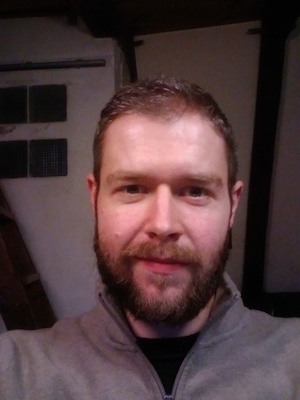
After travelling through the North America I am writing an article about legal cannabis in the different states and provinces.
Samuel Lancaster Jakobsen
Cand.Soc.
- - - - - - - - - - - - - - - - - - - - - - - - - - - - - - - - - - - - - - - - - - - - - - - - - - - - -
Click for More Projects

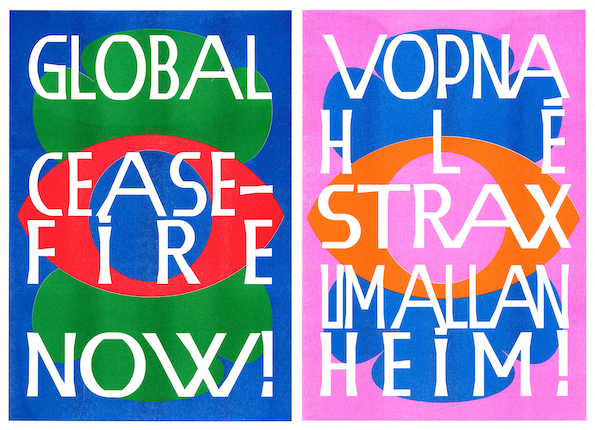
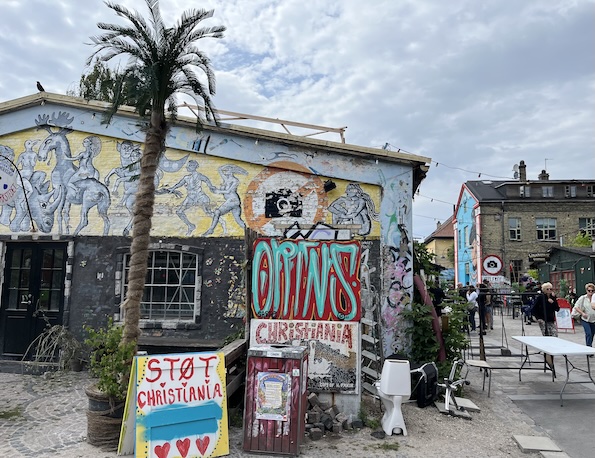
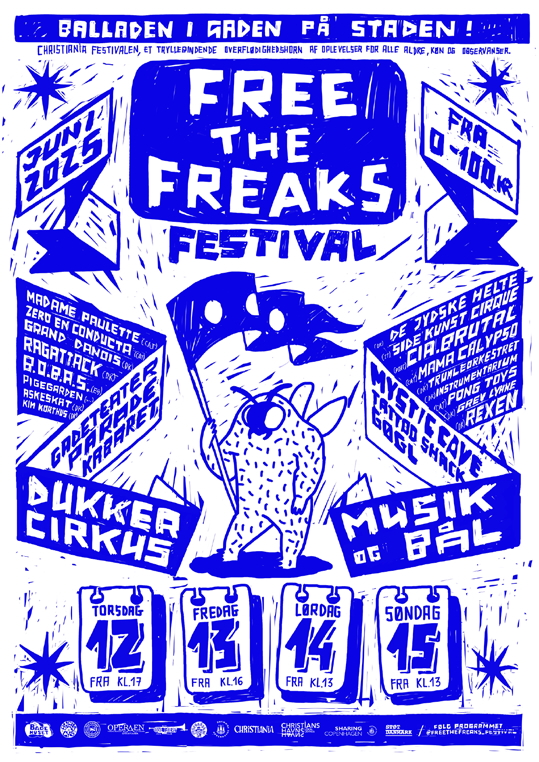
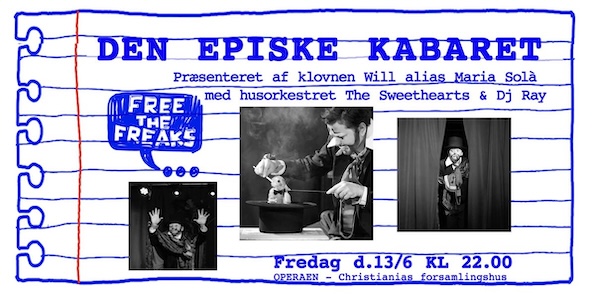

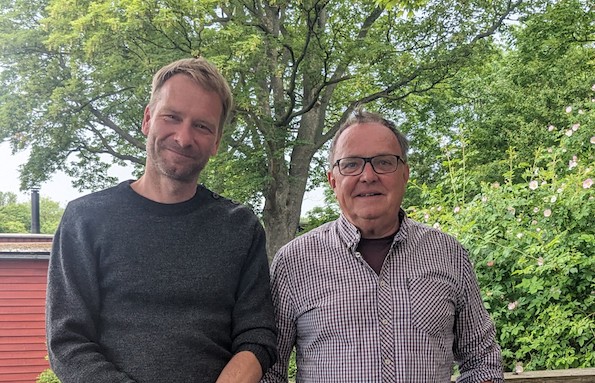
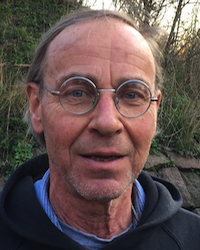
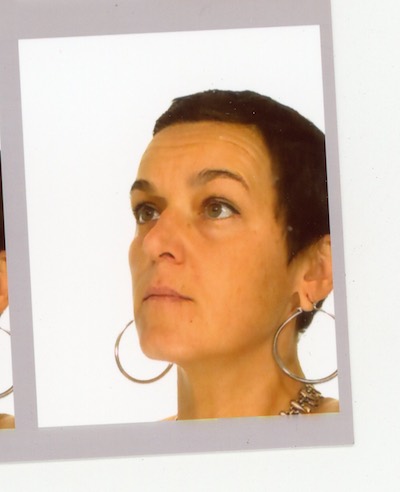
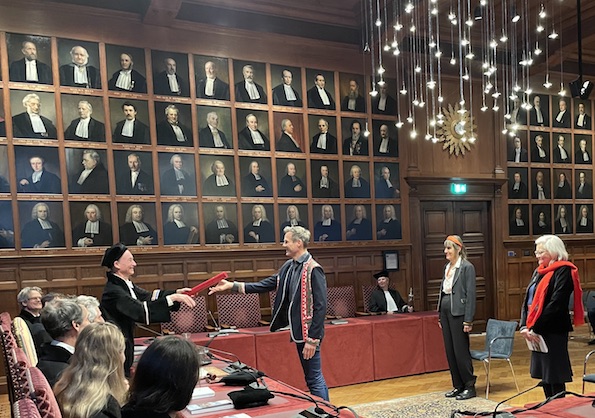
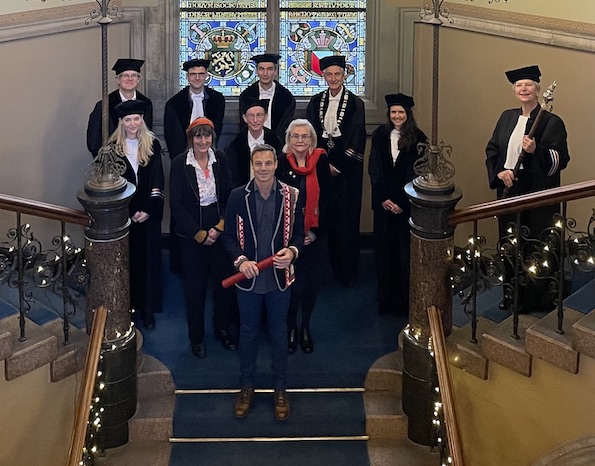
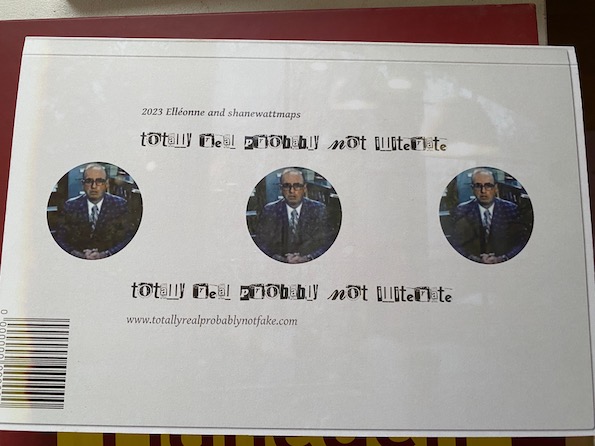
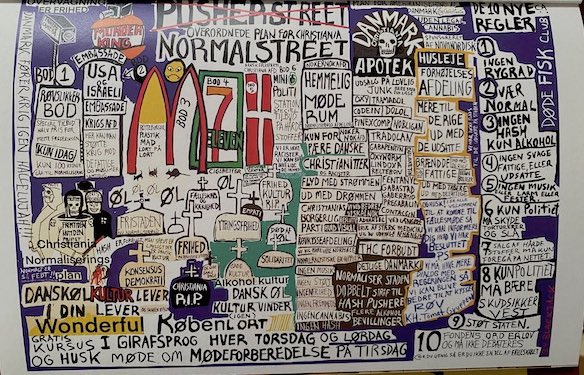
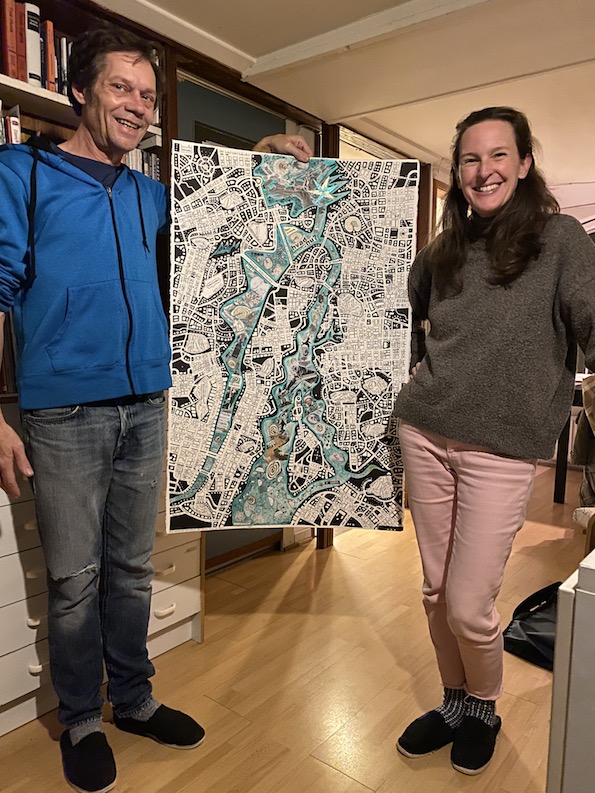
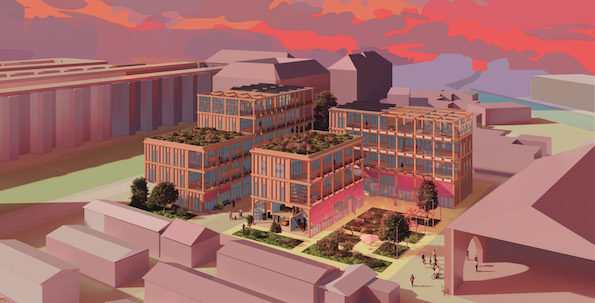
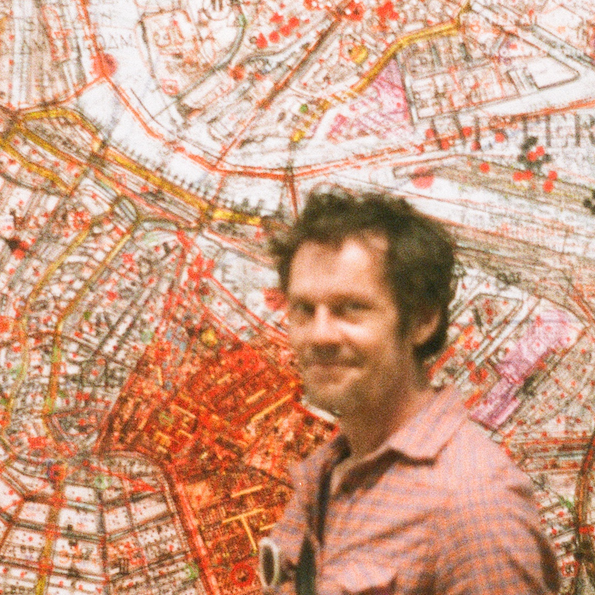
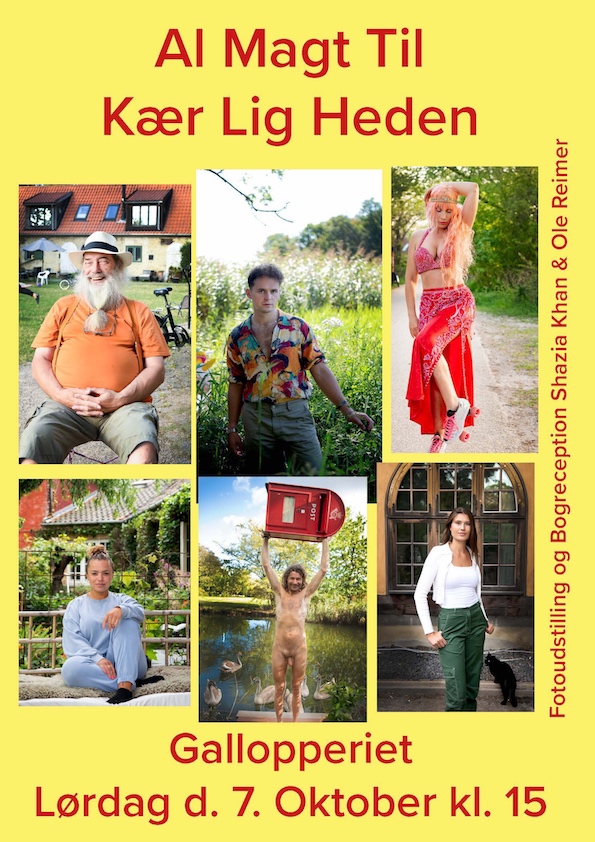
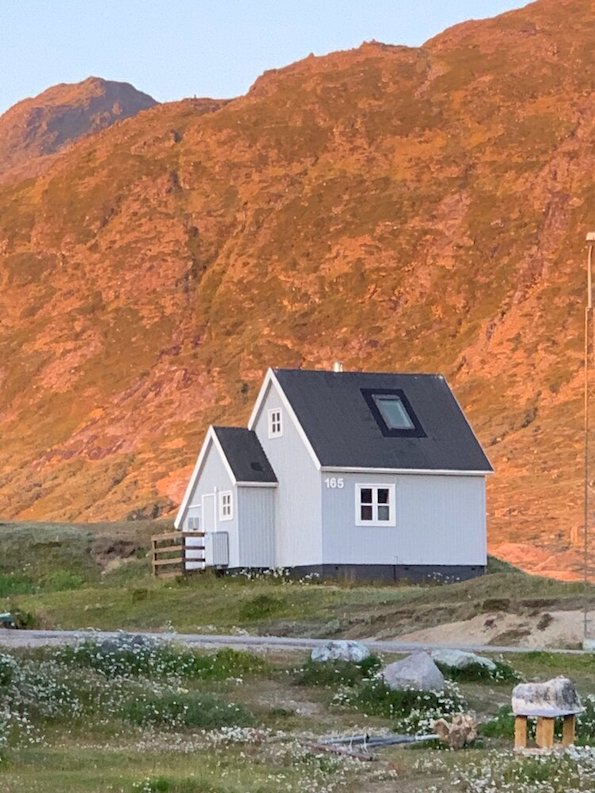
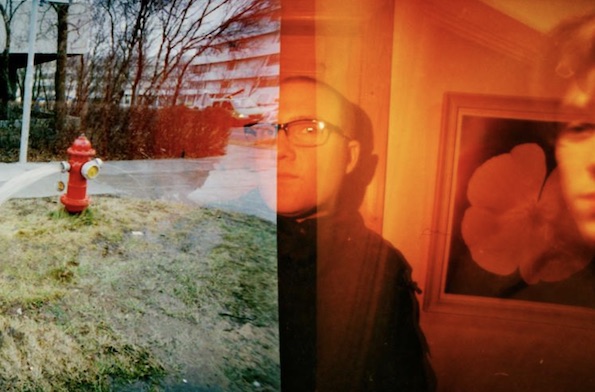
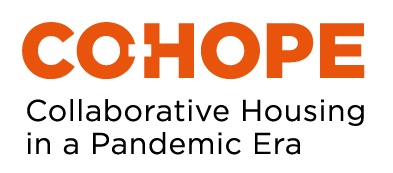
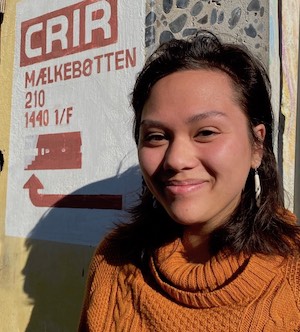
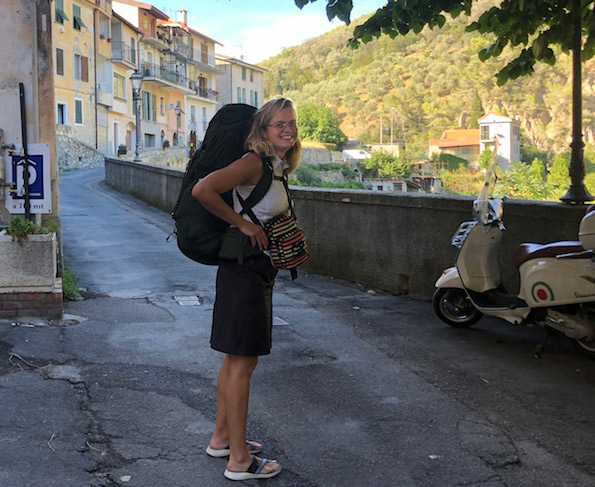
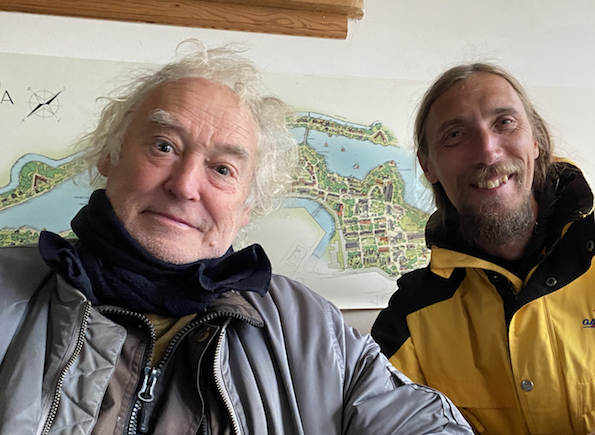 - - - - - -
- - - - - - - - - - - - - - - - - - - - - - - - - - - - -
- - - - - - - - - - - - - - - - -
- - - - - -
- - - - - - - - - - - - - - - - - - - - - - - - - - - - -
- - - - - - - - - - - - - - - - -
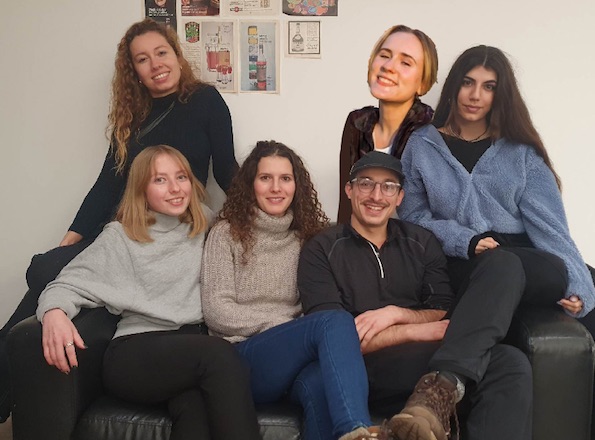
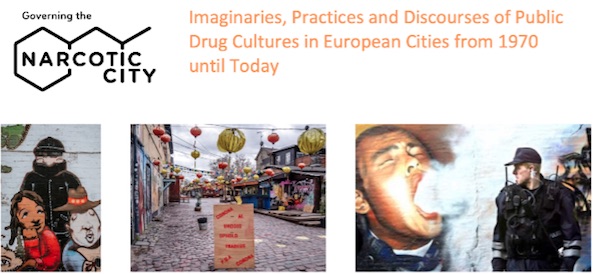
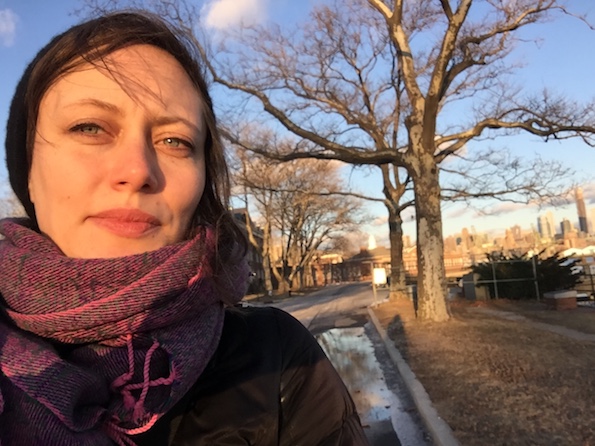
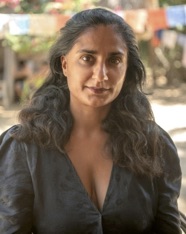
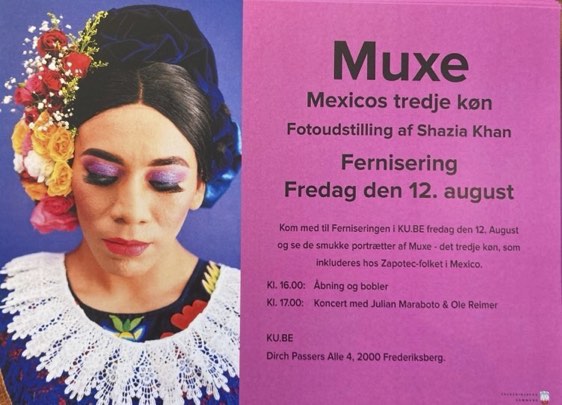
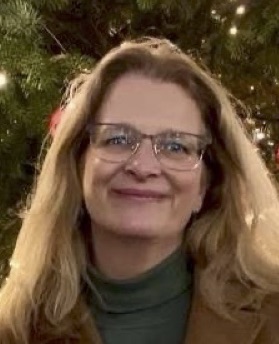
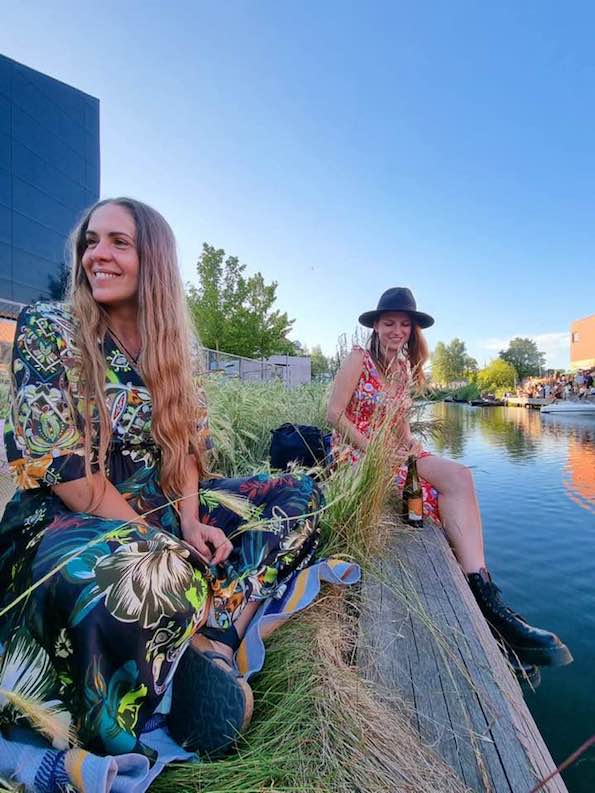
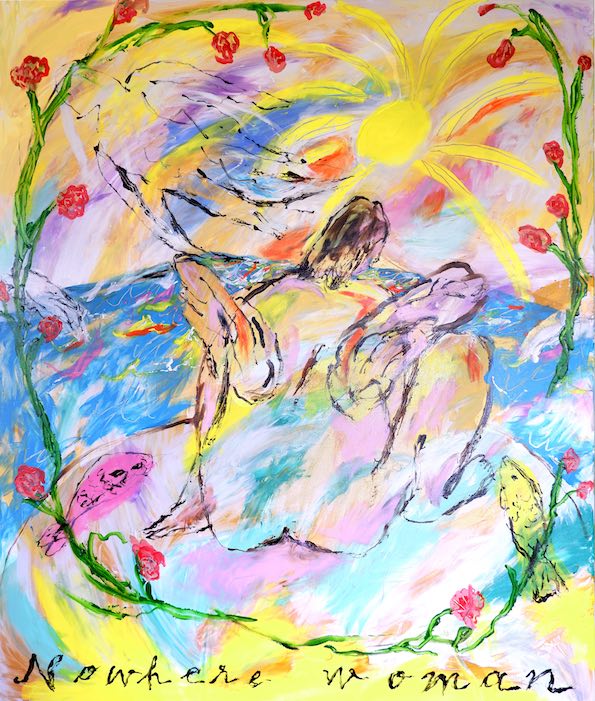
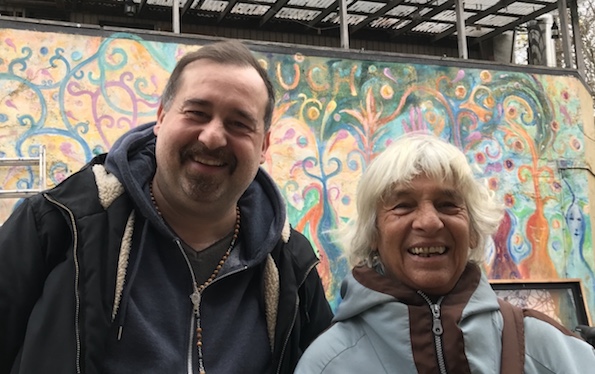 Former
Christianites now situated in Germany and France
Former
Christianites now situated in Germany and France